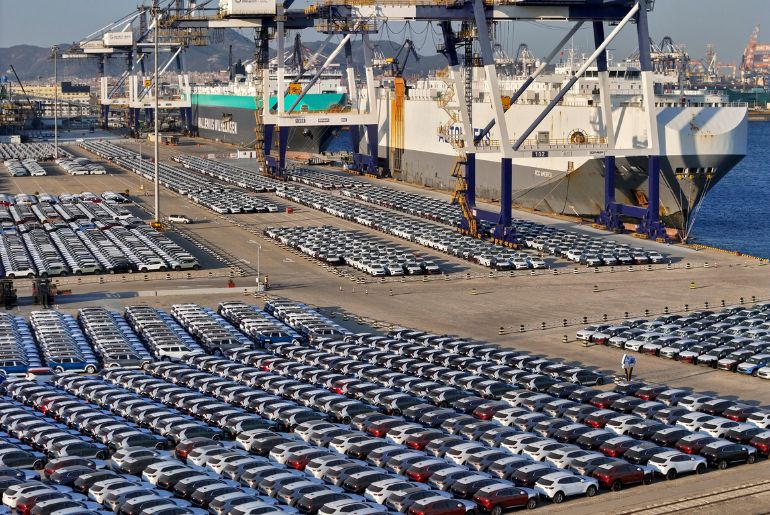After dominating the export market for a second year in 2024, China’s auto exports are expected to decline significantly this year, with little growth anticipated for shipments of electric vehicles, according to an official from the auto association.
Despite additional tariffs on Chinese-made electric vehicles that the European Union introduced in late October, China likely ranked as the world’s largest auto exporter for a second consecutive year in 2024, with car exports up 25% to 4.8 million units, according to data from the China Passenger Car Association (CPCA).
The Japan Automobile Manufacturers Association reports that in the first 11 months of 2024, Japan’s auto exports decreased 4.3% to 3.82 million automobiles.
However, according to CPCA secretary general Cui Dongshu, export growth is likely to slow to 10% this year, with a predicted decline in shipments to Russia adding to the pressure on European tariffs. EV exports are predicted to have “zero growth.” Last year, exports of new energy vehicles (NEVs), which include plug-in hybrids and electric automobiles, increased 24.3% to 1.29 million.
According to the association, exports to the bloc were negatively impacted by a year-long subsidy investigation into Chinese-made EVs, with a 10% growth in the first few months falling far short of a 36% increase in 2023.
According to CPCA, exports to Thailand, Australia, and the United Kingdom decreased during the first 11 months of 2024, while the top three markets for automobiles built in China were Russia, Mexico, and the United Arab Emirates.
According to Charles Lester, research analyst at Rho Motion, setting up production facilities in Europe, like BYD’s in Hungary, will help China’s automakers increase their market share there over time, even though EU tariffs would temporarily restrict sales of Chinese EVs.
Government subsidies of up to $2,000 for more fuel-efficient combustion engine vehicles and up to $2,800 for NEV sales helped to sell over 6.6 million cars last year. Official data shows that more than 60% of the subsidized purchases were for NEVs.
According to the CPCA, NEV sales are forecast to increase by 20% this year, accounting for 57% of China’s total automobile sales, while overall car sales are predicted to climb by 2% this year.
Over the years, China’s auto sector has suffered a decline in profitability despite the expansion in sales. In the first 11 months of 2024, sales profit margins were 4.4%. According to the association, that contrasts with 5.2% in 2023 and 6.2% in 2020.

